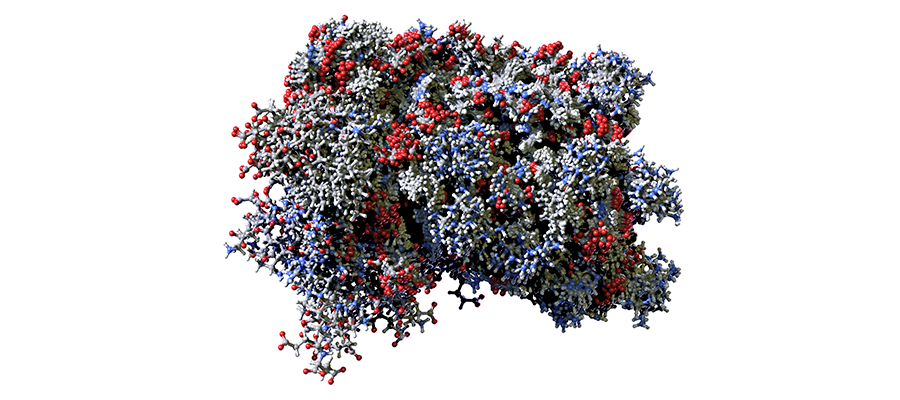EORTC Melanoma Group investigating use of PEG-IFN- α-2b for patients with stage II ulcerated primary cutaneous melanoma
16 Jan 2013
Survival rates are lower for patients with ulcerated as opposed to non-ulcerated melanomas of a similar tumor category, showing a possible different biological behavior. It was observed in prior EORTC adjuvant trials that patients with ulcerated primary melanoma and none or minimal lymph nodal involvement treated with either pegylated interferon α-2b (PEG-IFN- α-2b) – EORTC trial 18991 – or interferon α-2b – EORTC trial 18952 – had a significant improvement regarding the outcome (relapse free survival, distant metastasis free survival, and overall survival) as compared to those randomized in the observation group. This subgroup analysis indicated that the efficacy of interferon α-2b in patients with ulcerated melanoma is limited to those with low bulk disease in which the initial lymph node involvement is non-existent or low.
Based on these observations and on the fact that PEG-IFN- α-2b has been approved for stage III melanoma, the EORTC Melanoma Group designed EORTC trial 18081 for patients with stage II (Breslow thickness > 1 mm) ulcerated primary cutaneous melanoma. This randomized phase III trial will compare adjuvant low dose PEG-IFN- α-2b for two years versus observation. The previously conducted EORTC 18991 study found that patients experienced the most toxicity with PEG-IFN- α-2b during the high dose induction phase, about 12.5% of patients stop treatment because of toxicity, but that PEG-IFN- α-2b was better tolerated during the maintenance phase.
Dr. Alessandro Testori of the Istituto Europeo Di Oncologia in Milan and coordinator of this study says, “This study will first of all offer a treatment opportunity to a very specific population of melanoma patients without evidence of metastases. It is based on the belief that the selection of patients who might benefit more from a specific treatment will offer the best options of efficacy against the melanoma diagnosed in these patients. From our experience in other stages using this same drug, we feel that we should be able to offer a very low toxicity profile thereby obviating a deteriorated quality of life during the two years of therapy”.
EORTC trial 18081 plans to recruit 1200 patients. The first patient was enrolled in January 2013, and currently three sites are open in France: Hôpital Saint-Andre in Bordeaux, Hôpital Haut-Lévêque in Pessac, and Hôpital De L’Archet in Nice. The Institut Goustave Roussy in Villejuif, CHU de Grenoble, CHU d’Amiens, CHU de Lille, Institut Jules Bordet in Brussels, Belgium, and the Istituto Europeo Di Oncologia in Milan, Italy will soon open for recruitment as well. Activation of the remaining European sites, 70 in total and located in 14 different countries, is expected to occur within the next few months. This EORTC trial is supported by an educational grant from Merck (USA).
For more information concerning EORTC trial 18081 please contact: www.eortc.org/contact
John Bean, MA PhD
EORTC, Medical Science Writer
Related News
EORTC: Advancing research and treatment for rare cancers
29 Feb 2024
EORTC Fellowship Programme: celebrating more than 20 years of impactful collaboration
22 Feb 2024
Appointment of Malte Peters as EORTC Strategic Alliance Officer
9 Feb 2024
Unique series of workshops in partnership with the European Medicines Agency (EMA)
7 Feb 2024
EORTC launches a prominent clinical trial in older patients with locally advanced (LA) HNSCC (Head and Neck Squamous Cell Carcinoma)
14 Dec 2023
Seven IMMUcan abstracts selected for ESMO Immuno-Oncology Congress 2023
6 Dec 2023
EORTC Quality of Life measures integrated in CDISC
20 Nov 2023
EORTC and Immunocore are collaborating to launch the ATOM clinical trial of tebentafusp in Adjuvant Uveal Melanoma
7 Nov 2023
Treatment with decitabine resulted in a similar survival and fewer adverse events compared with conventional chemotherapy in older fit patients with acute myeloid leukaemia
31 Oct 2023
New results and forthcoming EORTC trials in rare cancers, lung, head and neck, and breast carcinomas presented at ESMO 2023
20 Oct 2023


